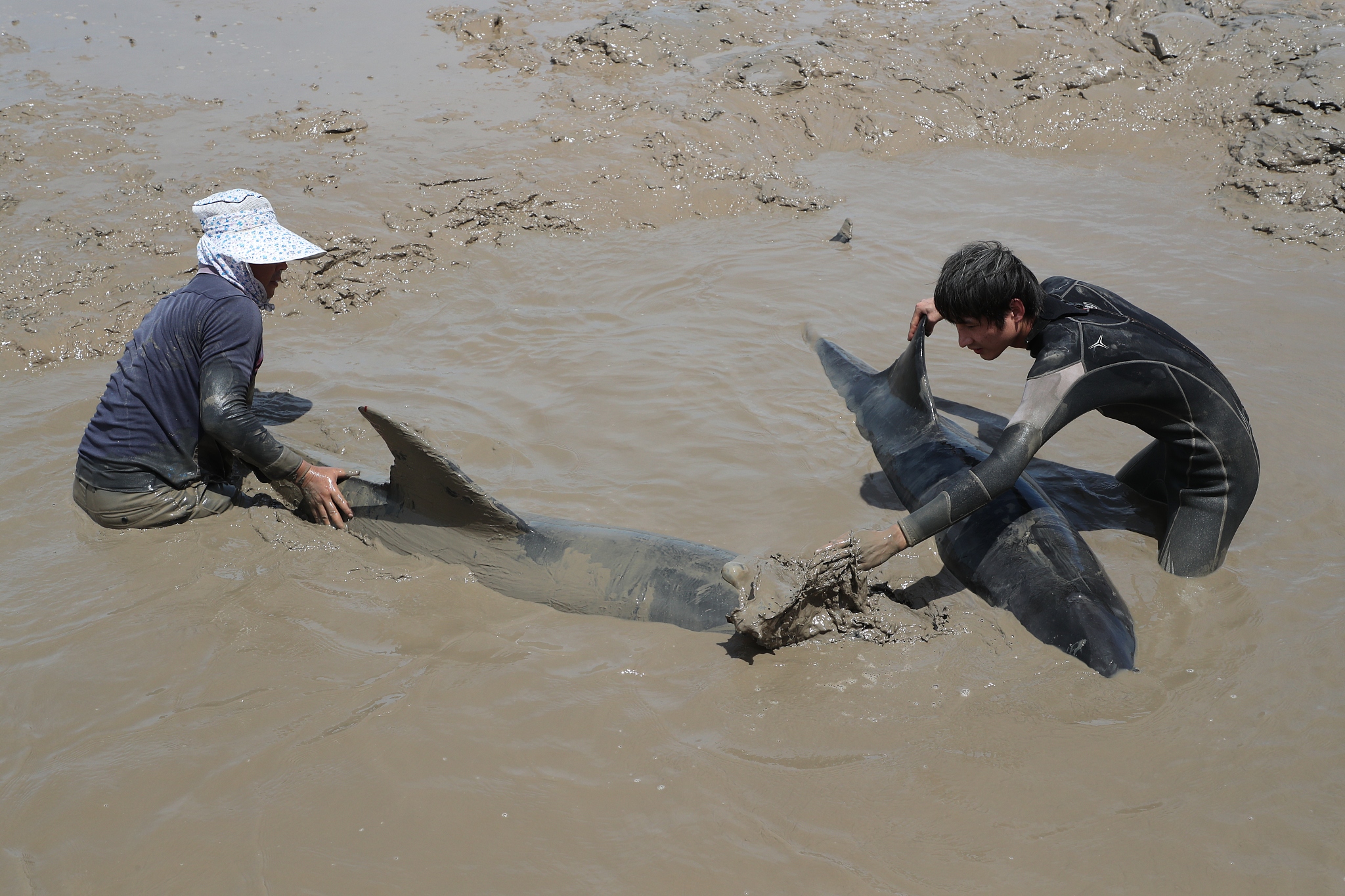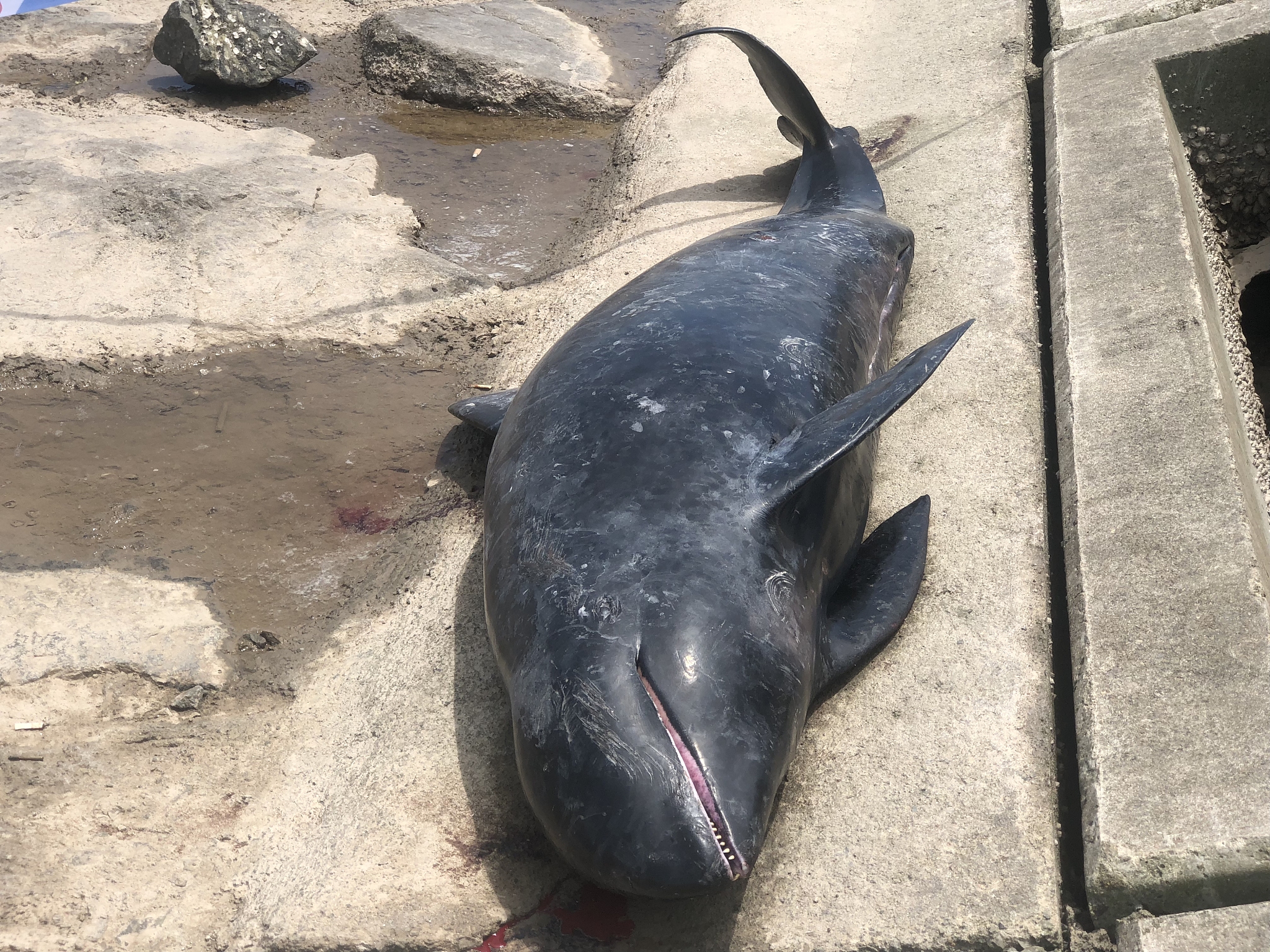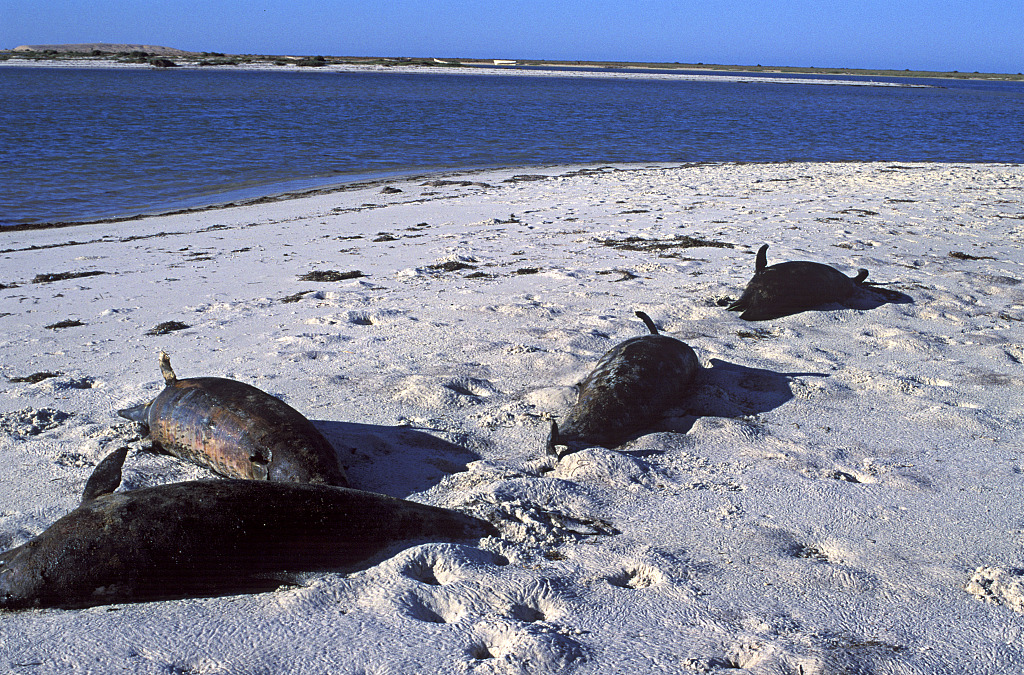On July 6, 12 melon-headed whales were found stranded onshore in Toumen Port, Linhai City in east China's Zhejiang Province. Three of them died before rescuers arrived. Two were released the same day back into deep water after an operation lasting several hours and the rest sent to a local aquarium for observation. Four more whales were released on the evening of July 7.

Rescuers try to save stranded melon-headed whales on July 6. /CFP
Rescuers try to save stranded melon-headed whales on July 6. /CFP
The melon-headed whale is under second-class state protection in China.
The 12 whales were spotted on the beach in the morning by fishermen who reported the discovery to authorities. Soon, more than 100 rescuers and fishermen gathered to save the whales by covering their bodies with wet towels and dousing them with buckets of seawater in the extremely hot weather.

A dead melon-headed whale. /CFP
A dead melon-headed whale. /CFP
There are many possible reasons for the stranding. Some experts say that as it is not the fishing season, whales were swimming close to shore in search of food and accidentally got trapped onshore. Others indicate that they just got lost.

People were busy rescuing this stranded melon-headed whale in July 6. /CFP
People were busy rescuing this stranded melon-headed whale in July 6. /CFP
Stranding actually happens within highly social dolphin and whale species, like pilot and melon-headed whales, as the whole group will stay together tightly without abandoning injured or sick members. Therefore, if one is stranded, the others would strand themselves. Besides, food shortages and noise caused by ships might also drive them to shallow water which might lead to stranding.

Stranded dolphins in North Africa. /VCG
Stranded dolphins in North Africa. /VCG
If you should ever find an animal like dolphins and whales on shore or in shallow water, call local authorities like the police or fisheries departments for help. If possible, bring buckets of seawater to pour over their skin, but be sure to avoid the blowholes. Shirts and towels soaked in water can also be put on the animal skin to avoid overheat. You can also use beach umbrellas to make shade for them. However, do not move the animals back into the water without instruction from competent authorities, otherwise you might cause them more harm.
(Cover image via VCG. )
(If you want to contribute and have specific expertise, please contact us at nature@cgtn.com.)

